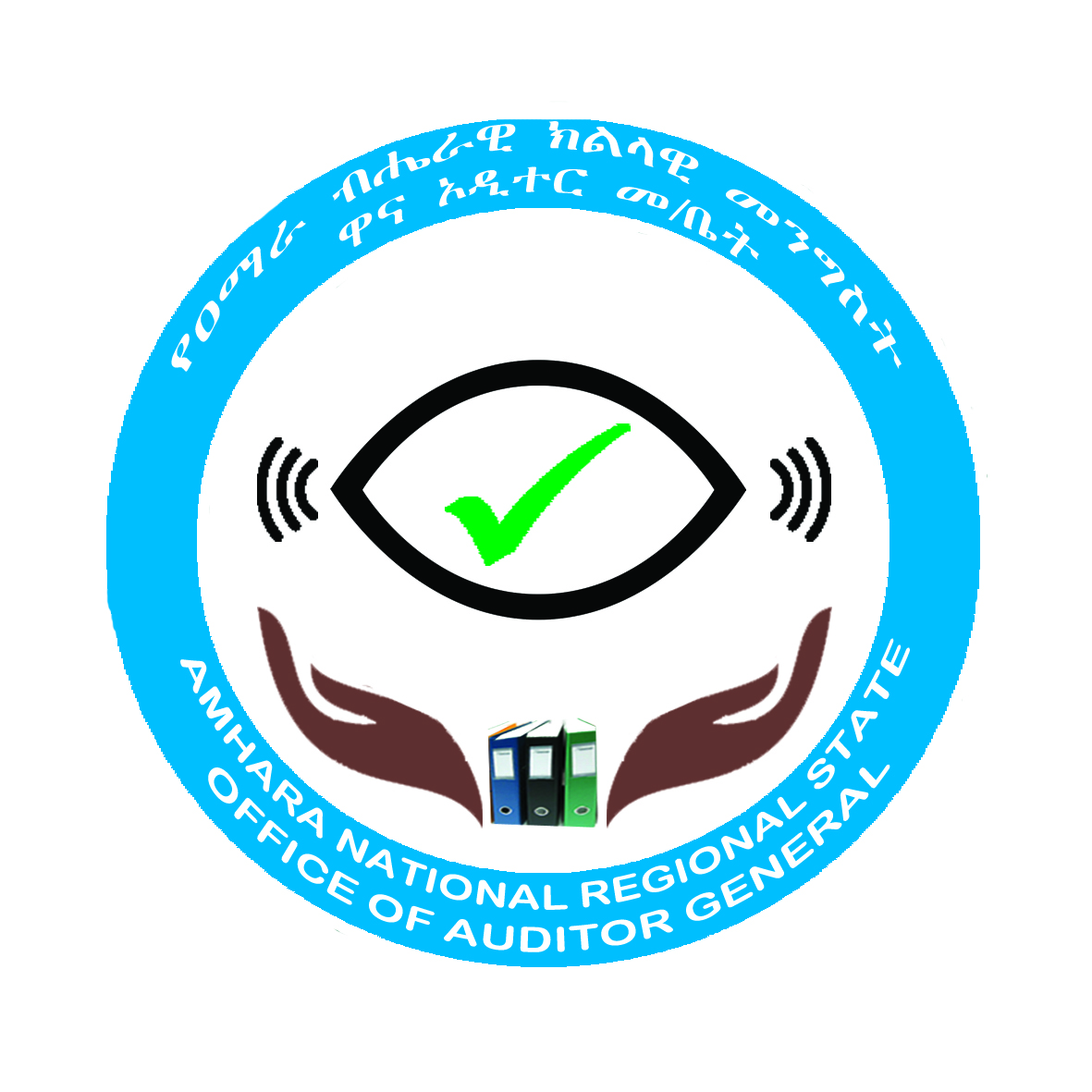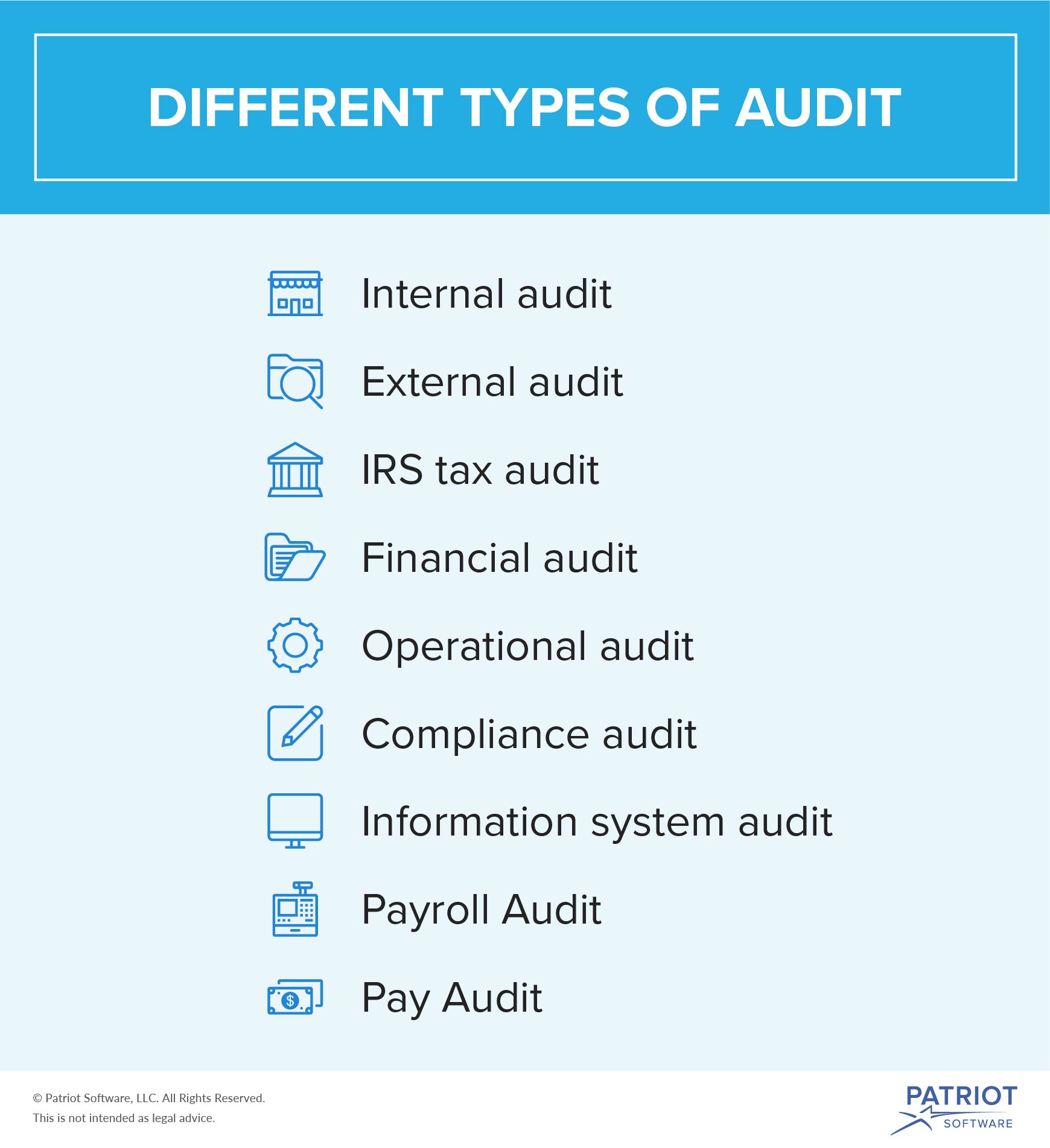About Auditing
As a brief recap, an audit examines your financial records and transactions to verify they are accurate. Typically, audits look at your financial statements and accounting books to compare information.
You or your employees may conduct audits. Or, you might have a third party audit your information (e.g., IRS audits).
Many business owners have routine audits, such as once per year. If you are not organized or don’t keep thorough records, your audits might take more time to complete.
Types of audits can vary from business to business. For example, a construction business might conduct an audit to analyze how much they spent on a specific project (e.g., costs for contractors or supplies).
Overall, audits help ensure your business is operating smoothly. So, what are the various types of audit?
Internal audit
Internal audits take place within your business. As the business owner, you initiate the audit while someone else in your business conducts it.
Businesses that have shareholders or board members may use internal audits as a way to update them on their business’s finances. And, internal audits are a good way to check in on financial goals.
Although there are many reasons you may conduct an internal audit, some common reasons include to:
- Propose improvements
- Monitor effectiveness
- Make sure your business is compliant with laws and regulations
- Review and verify financial information
- Evaluate risk management policies and procedures
- Examine operation processes
External audit
An external audit is conducted by a third party, such as an accountant, the IRS, or a tax agency. The external auditor has no connection to your business (e.g., not an employee). And, external auditors must follow generally accepted auditing standards (GAAS).
Like internal audits, the main objective of an external audit is to determine the accuracy of accounting records.
Investors and lenders typically require external audits to ensure the business’s financial information and data is accurate and fair.
Audit reports
When your business is audited, external auditors usually give you an audit report. Audit reports include details of the audit process and what was found. And, the report includes whether your financial records are accurate, missing information, or inaccurate.
IRS tax audit
IRS tax audits are used to assess the accuracy of your company’s filed tax returns. Auditors look for discrepancies in your business’s tax liabilities to make sure your company did not overpay or underpay taxes. And, tax auditors review possible errors on your small business tax return.
Auditors usually conduct IRS audits randomly. IRS audits can be conducted via mail or through in-person interviews.
Financial audit
A financial audit is one of the most common types of audit. Most types of financial audits are external.
During a financial audit, the auditor analyzes the fairness and accuracy of a business’s financial statements.
Auditors review transactions, procedures, and balances to conduct a financial audit.
After the audit, the third party usually releases an audit opinion about your business to lenders, creditors, and investors.
Operational audit
Operational audits are similar to internal audits. An operational audit analyzes your company’s goals, planning processes, procedures, and operation results.
Generally, operational audits are conducted internally. However, an operational audit can be external.
The goal of an operational audit is to fully evaluate your business’s operations and determine ways to improve them.
Compliance audit
A compliance audit examines your business’s policies and procedures to see if they comply with internal or external standards.
Compliance audits can help determine whether or not your business is compliant with paying workers’ compensation or shareholder distributions. And, they can help determine if your business is compliant with IRS regulations.
Information system audit
Information systems audits mostly impact software and IT companies. Business owners use information system audits to detect issues relating to software development, data processing, and computer systems.
This type of audit ensures the system provides accurate information to users and makes sure unauthorized parties do not have access to private data.
Also, IT and non-software businesses should regularly conduct mini cybersecurity audits to ensure their systems are secure from fraud and hackers.
Payroll audit
A payroll audit examines your business’s payroll processes to ensure they are accurate. When conducting payroll audits, look at different payroll factors, such as pay rates, wages, tax withholdings, and employee information.
Payroll audits are typically internal. Conducting internal payroll audits helps prevent possible external audits in the future.
Businesses should conduct internal payroll audits annually to check for errors in their payroll processes and remain compliant.
Pay audit
Pay audits allow you to identify pay discrepancies among your employees.
A pay audit can help you spot unequal pay at your company. During a pay audit, analyze things like disparities due to race, religion, age, and gender.
Pay audits can also help you ensure workers are paid fairly based on your business’s industry and location.
Importance of audits
You must conduct audits regularly to understand different aspects of your business. And, audits can help catch issues early on before they snowball into big mistakes. If you don’t conduct audits, you may find yourself reviewing inaccurate information, which can impact your business later.
Before you kick the idea of audits to the curb, think about how they can benefit your small business. Audits can help you:
- Find financial problems
- Catch errors
- Boost your business’s bottom line
- Stay organized
- Make better business decisions

